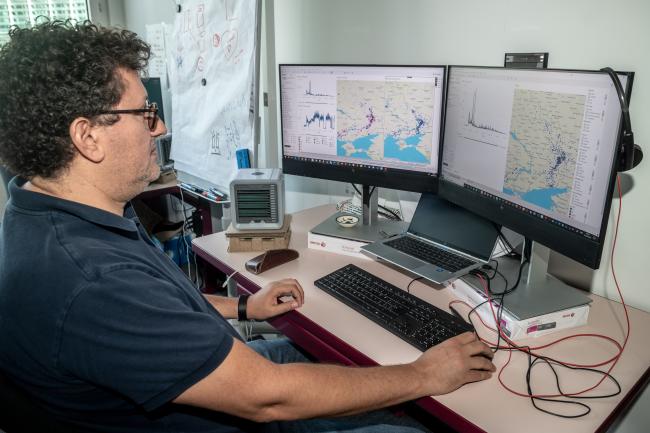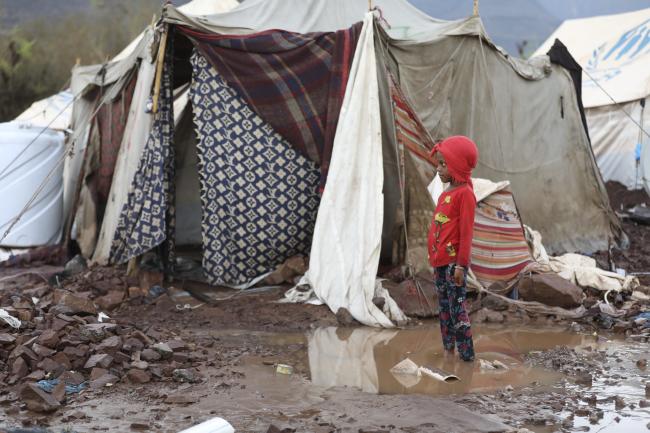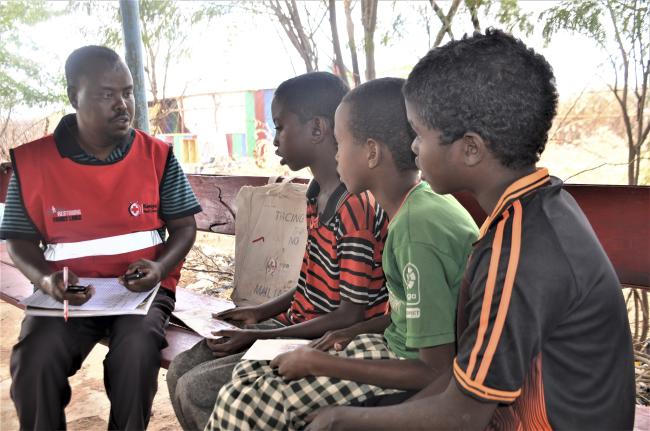A year of milestones in strengthening state engagement on Missing Migrants
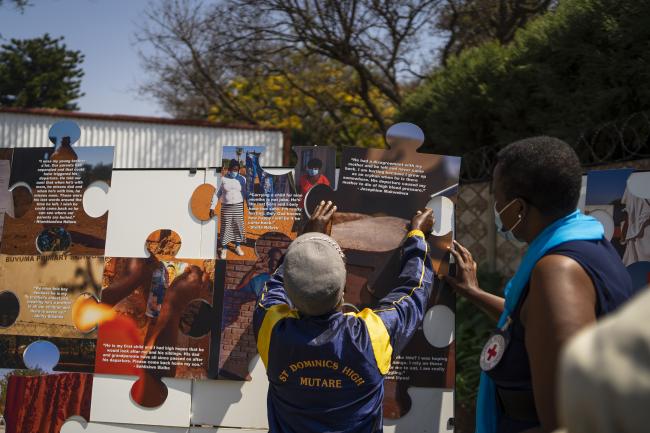
Over the past five years, the issue of missing migrants has become an ever more important aspect of the work of the International Committee of the Red Cross (ICRC) and the wider International Red Cross and Red Crescent Movement.
From the Sahel to the Mediterranean and Atlantic routes, to the Darién Gap and Central America, to the Andaman Sea and the Gulf of Aden, to southern Africa, staggering numbers of migrants continue to go missing along ever more precarious routes over land and by sea.
According to the International Organization for Migration (IOM), at least 52,000 migrants have died over the past eight years – and thousands more have disappeared. As a result, tens of thousands of families are left without news about the fate of their loved ones.
As this issue is much too complex and challenging for anyone to tackle alone, the ICRC and the wider Movement have for many years been joining forces with others to promote transnational cooperation on the search for the missing and address the needs of their families.
In addition, the Central Tracing Agency has been developing new operational frameworks, forensic methodologies, search algorithms and approaches to working with families, and expanding the network of practitioners.
State action has, however, broadly fallen short. Four years after the adoption of the Global Compact on Migration and its Objective 8 on saving lives and missing migrants, missing migrants remain among the commitments that have seen the least progress. For this reason, many of our activities over the past year have focused on mobilizing states.
HERE'S A CLOSER LOOK AT THE 2022 MILESTONES
FEBRUARY
A joint statement by the heads of the ICRC, IFRC, the agencies of the UN Migration Network and ICMP was issued, calling on states to prevent migrants from dying or going missing, to search and identify those who have died or gone missing, and to provide support and redress to the families of those who have died or gone missing.
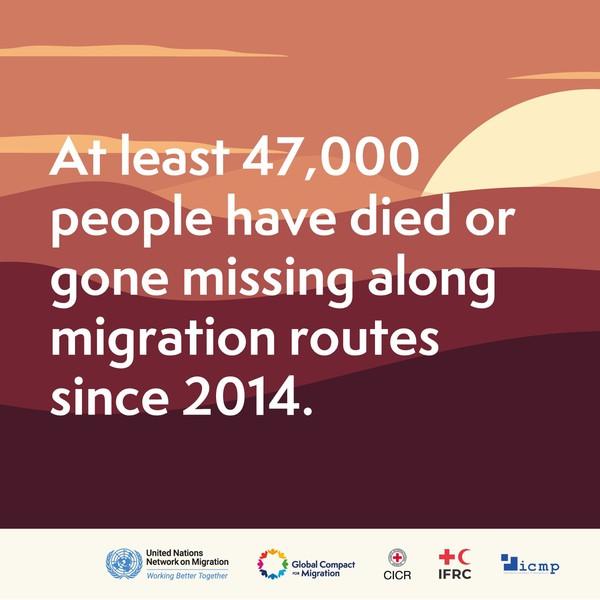
MARCH
The UN Migration Dialogue online event, Missing Migrants: Missing Solutions?, jointly organized by ICRC and IOM, featured representatives of the African Commission on Human Rights, the UN Working Group on Enforced and Involuntary Disappearance and the Argentinian Forensic Anthropology Team. The webinar aimed at raising awareness among states of the issue of missing migrants, and advocate for greater efforts towards concrete measures to prevent and resolve missing migrant cases and address the needs of their families, and thus meet Objective 8 of the Global Compact for Safe, Orderly and Regular Migration. The webinar presented the latest data and analysis and available guidance and included presentations by practitioners and a family representative to show that the needs are real and solutions are possible.
APRIL
A side event at the UN General Assembly International Migration Review Forum featured path-breaking initiatives on missing migrants, such as a presentation by the Ministry of Foreign Affairs of El Salvador of regional recommendations on missing migrants recently adopted by the Regional Conference on Migration in the Americas. In the final progress declaration, the General Assembly referenced the ICRC’s guidance documents on missing migrants and asked the UN Secretary-General to develop actionable recommendations on international cooperation on missing migrants. The UN Migration Network subsequently asked the ICRC to co-chair a working group to develop those recommendations.
MAY
In May, the ICRC hosted representatives of 12 North and West African states in Tunis, Tunisia, to discuss a joint approach to the issue of missing migrants and refugees. The attendees included representatives of Algeria, Chad, Cote d’Ivoire, the Gambia, Libya, Mali, Mauritania, Morocco, Niger, Nigeria, Senegal and Tunisia, as well as the African Union, the International Federation of Red Cross and Red Crescent Societies, the IOM, the League of Arab States and the Office of the United Nations High Commissioner for Refugees. In a final joint communiqué, all participants deplored the disappearance of thousands of migrants in Africa each year and agreed on the urgent need to act by preventing disappearances, searching and identifying those who go missing, and addressing the multi-faceted needs of families of missing migrants. Key steps recommended by the participants included integrating the missing migrants issue into continental, regional and national policy and cooperation frameworks, strengthening bilateral and multilateral cooperation in search efforts, and creating a network of national focal points.
AUGUST
On the International Day of the Disappeared, a joint ICRC–African Union high-level policy dialogue on missing, separated and dead migrants was held at the African Union headquarters in Addis Ababa. The event sought to raise awareness of the fate of missing migrants and their families and marked the beginning of a broader engagement with the African Union on the topic.
On the same day, the ICRC’s Paris delegation and a number of European National Red Cross Societies launched an awareness campaign called No Trace of You, which drew attention to the thousands of migrants who go missing every year while attempting to reach Europe.
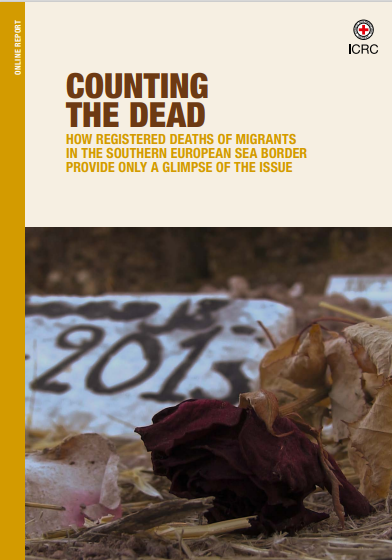
NOVEMBER
The ICRC’s Paris delegation issued a report entitled, Counting the Dead: How Registered Deaths of Migrants in the Southern European Sea Border Provide Only a Glimpse of the Issue. It takes stock of forensic responses in different countries around the Mediterranean and contains recommendations for a more concerted approach. The report reveals that only 13 per cent of their bodies were found and buried on Europe’s southern borders. Even fewer have been identified. The report sets out recommendations for states and organizations to identify dead migrants and provide information to family members more effectively.
DECEMBER
At the 6th Ministerial Conference of the Euro–African Dialogue on Migration and Development (Rabat Process) in Cadiz, Spain, the 54 states that are part of this process decided to include missing migrants in their mandate and make the ICRC a permanent observer (together with the IOM, UNHCR, and UN Office on Drugs and Crime). This migration dialogue represents a crucial opportunity to push for a more effective response along some of the deadliest migration routes in the world.


